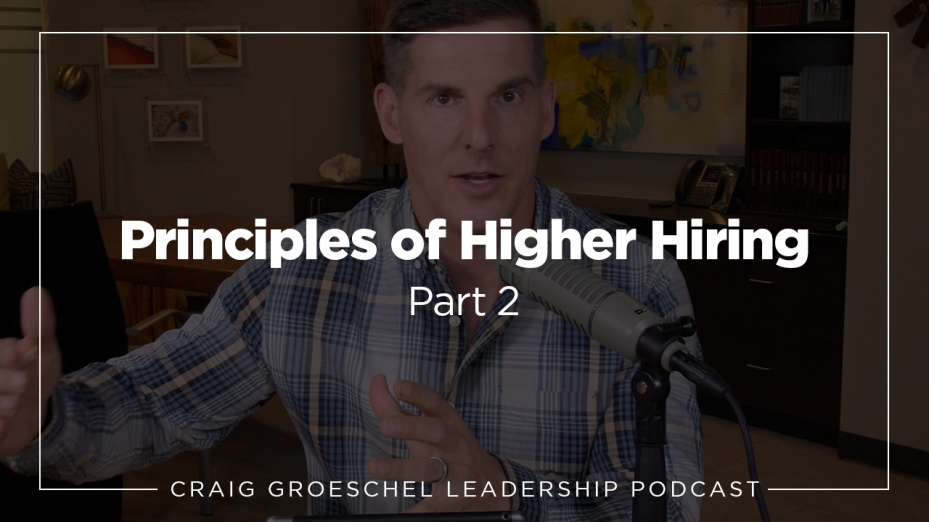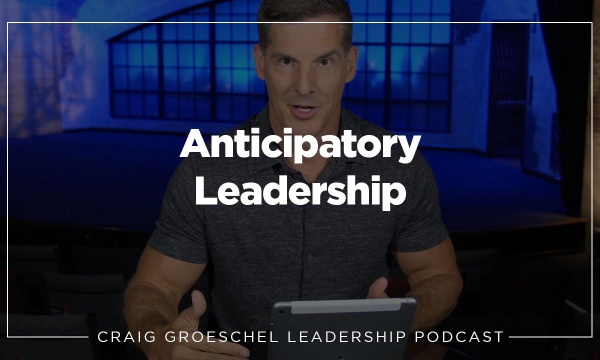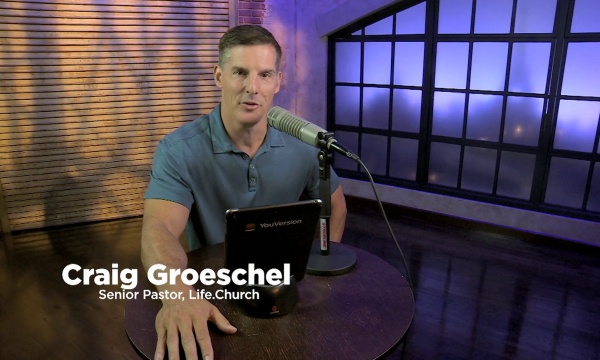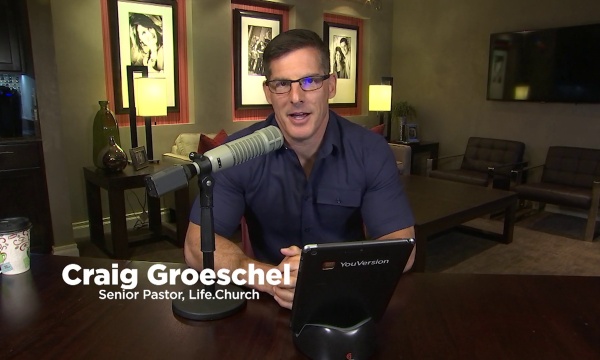Thank you for joining the Craig Groeschel Leadership Podcast! You can have the best product, the best strategy, and the best vision, but without the best people, your organization will always be limited! In last month's episode, we talked about two principles of making great hires. Today, we'll talk about two more practical ways you can select the best candidates when you're making a hire.
- Develop an intentional system or plan.
- Once you hire, train, release, and learn.
When you know what you want, decide how you will determine a fit. The system we use to hire the right people is based on rounds of rigorous recruiting, testing, and interviews. We won’t even bring a person in for interviews unless we’re 70% sure they could be a good fit on our team.
Our interview questions all fall under four main categories: skill, value, behavior, and character. In my experience, most companies only focus on skill and character. The best predictor of future success is past success. You can learn a lot from the past.
Last month, I asked you to define your core values and behavior values. Here is where that homework pays off.
If you find someone who is crazy talented but has vastly different values or behaviors, they're not a great fit! Make sure you ask questions geared toward your core values, and don't be afraid to put candidates in real-life situations to test them. If they don't have the skills yet, but they fit your values, go all-in!
| “Hire passionate people. You can train skills, but you can't train passion. –@craiggroeschel tweet this quote |
Training is absolutely critical. We use a two-day process called “Inside Out.” New staff are given books to read, expectations, and resources to become successful. We show them how to set goals, stay accountable, look at performance metrics, and stay healthy.
We give them slightly more responsibility than they expect, but considerably more feedback than they expect. Regular feedback helps improvement.
Now, this can be a very overwhelming time, but the time shortly after you hire someone is incredibly valuable. They have a fresh perspective. After 90 days, they are likely to start blending in and asking fewer questions. Early in their time on your team, ask intentional questions like "What surprised you?" or "What could we do to improve?"
| “You never accidentally stumble into a great team. You intentionally build one.” –@craiggroeschel tweet this quote |
Remember, you don’t have to know it all to be a great leader! Be yourself. People would rather follow a leader who is always real than one who is always right.
DISCUSSION QUESTIONS
Here's an exercise you can do to grow as a leader—ask yourself and your team these questions:
- Do I have a solid plan for recruiting, hiring, and onboarding new team members? If your answer is no, start creating one. If your answer is yes then ask, “What can we do to improve it?” Be specific. This is one of the most important things you will do.
- What’s our plan for getting helpful feedback from new team members? If you don’t have one, begin to define one.
LISTENER QUESTIONS
How do you effectively lead people that are 10, 20, or even 30 years older than you are without feeling like you are the one who should be learning from them? – Dan
Great question, Dan. If you haven’t already, I encourage you to check out a couple earlier episodes of this podcast called “Leading Up,” Part 1 and Part 2. This question is somewhat different, though.
The first thing you must do is to believe in yourself. You are where you are because God wanted you there. And if you don’t believe in God, you are in that role because someone else thought you were qualified. Get confidence from that truth.
Remember, people who are older have something in common with you. They want to be liked, valued, appreciated, and heard. When you care about them as people, the age difference will vanish quickly.
Now, when you ask how to lead them without feeling like you need to learn from them, one thing you must realize is this: those things don't need to be mutually exclusive! You should want to learn from them—explain that to them. And remember that they don't feel old. Treat them like someone you love and believe in, and you'll get a lot done together. Most people respond to good leadership, not ageship.
How do we discern the line between grace and accountability? - Jason
We have to know that not everyone will hit a home run their first time to bat. So what do we do when someone strikes out? My dad was a great baseball player and coach. He always taught players this: Don’t strike out watching the pitch. Strike out swinging.
- If someone is trying, growing, learning, and in the game, we will show some grace.
- If they are irresponsible, lazy, uninvolved, and unteachable, then the conversation changes.
- If over time, they are still trying their hardest and not getting on base, maybe it’s time to try a different role.
We want them to know that our goal is their growth and organizational success. Any time there is grace, it’s to help them grow. Any time there is accountability, it’s to help them grow. Giving them grace or accountability doesn't mean we don’t like them—both are expressions of solid and caring leadership!
Have a question for Craig? Email him at leadership@life.church.
EPISODE RESOURCES
Leave a review: www.go2.lc/leadershippodcastitunes
Catalyst One Day: www.catalystconference.com/oneday
Watch Life.Church messages: www.life.church/watch
More from Craig: www.craiggroeschelbooks.com
Craig Groeschel, Divine Direction: 7 Decisions That Will Change Your Life
Free church resources & tools: www.life.church/churches
Craig Groeschel Leadership Podcast: Leading Up, Part 1 and Part 2
CONNECT WITH CRAIG
Ask questions: leadership@life.church
Facebook: www.facebook.com/craiggroeschel
Twitter: @craiggroeschel
Instagram: @craiggroeschel
Snapchat: @craiggroeschel
Periscope: @craiggroeschel



